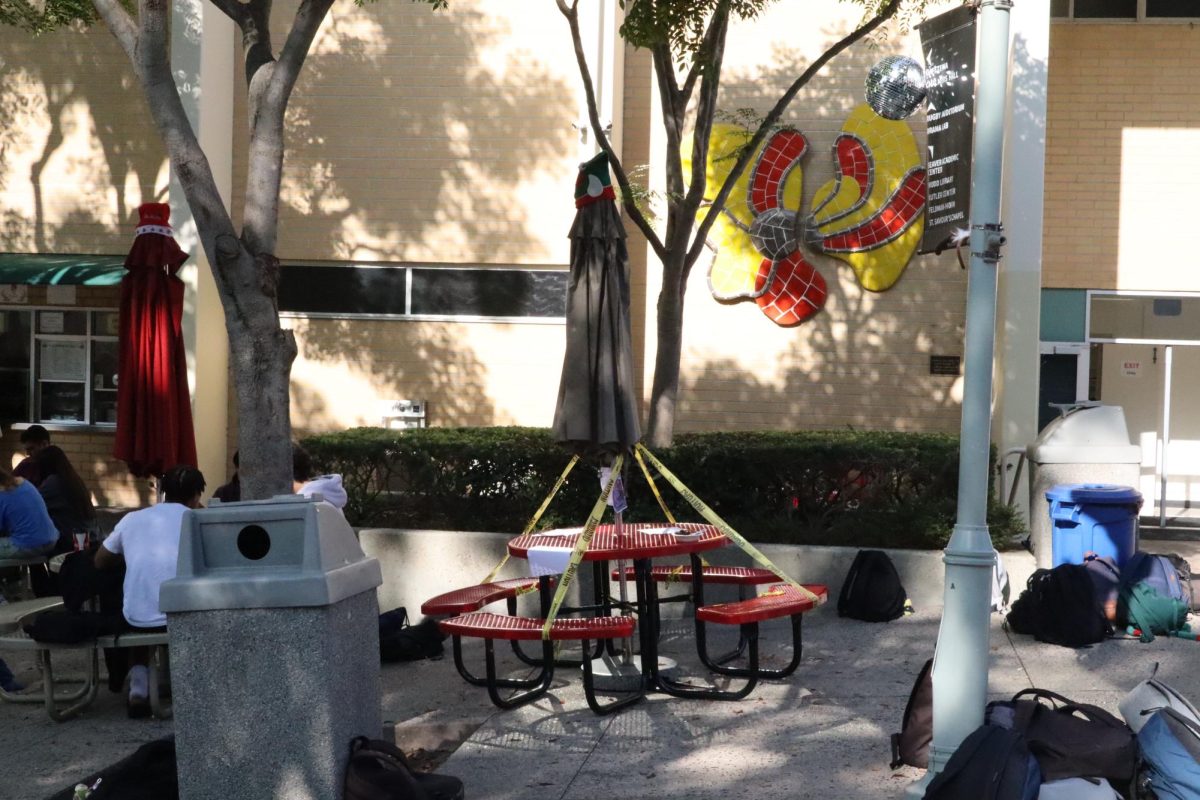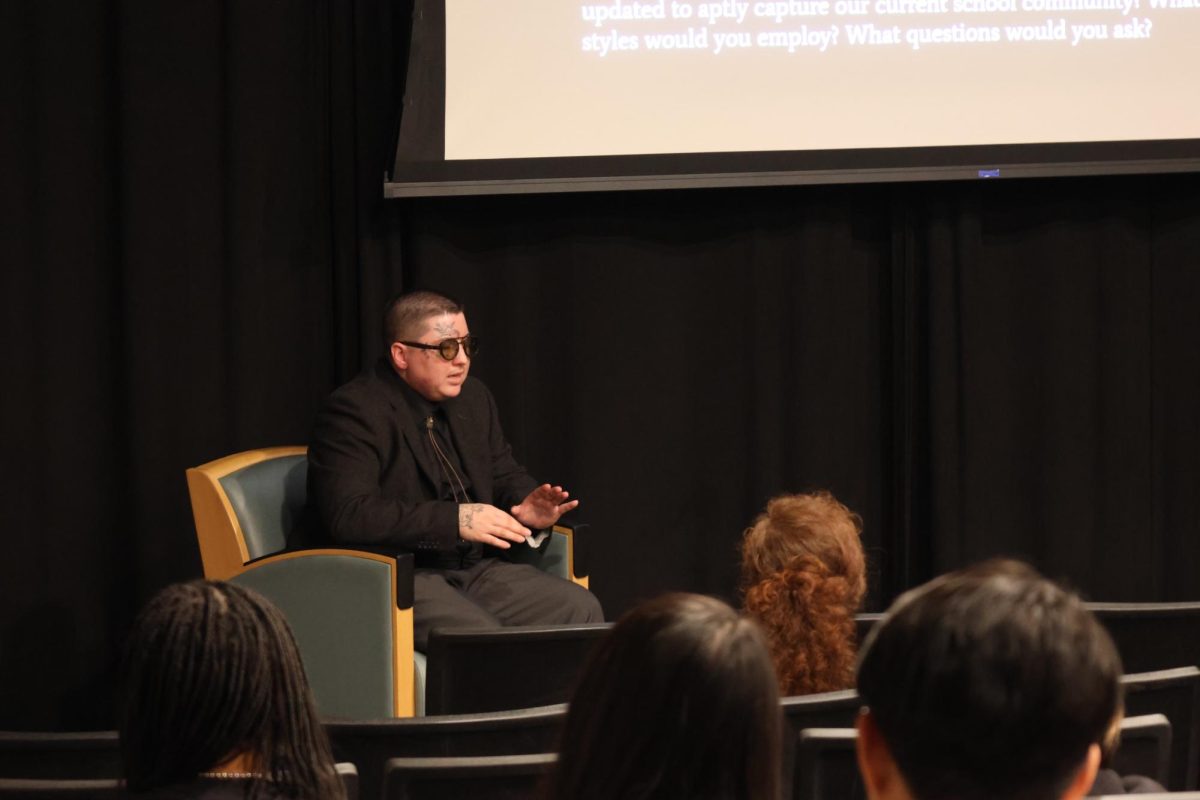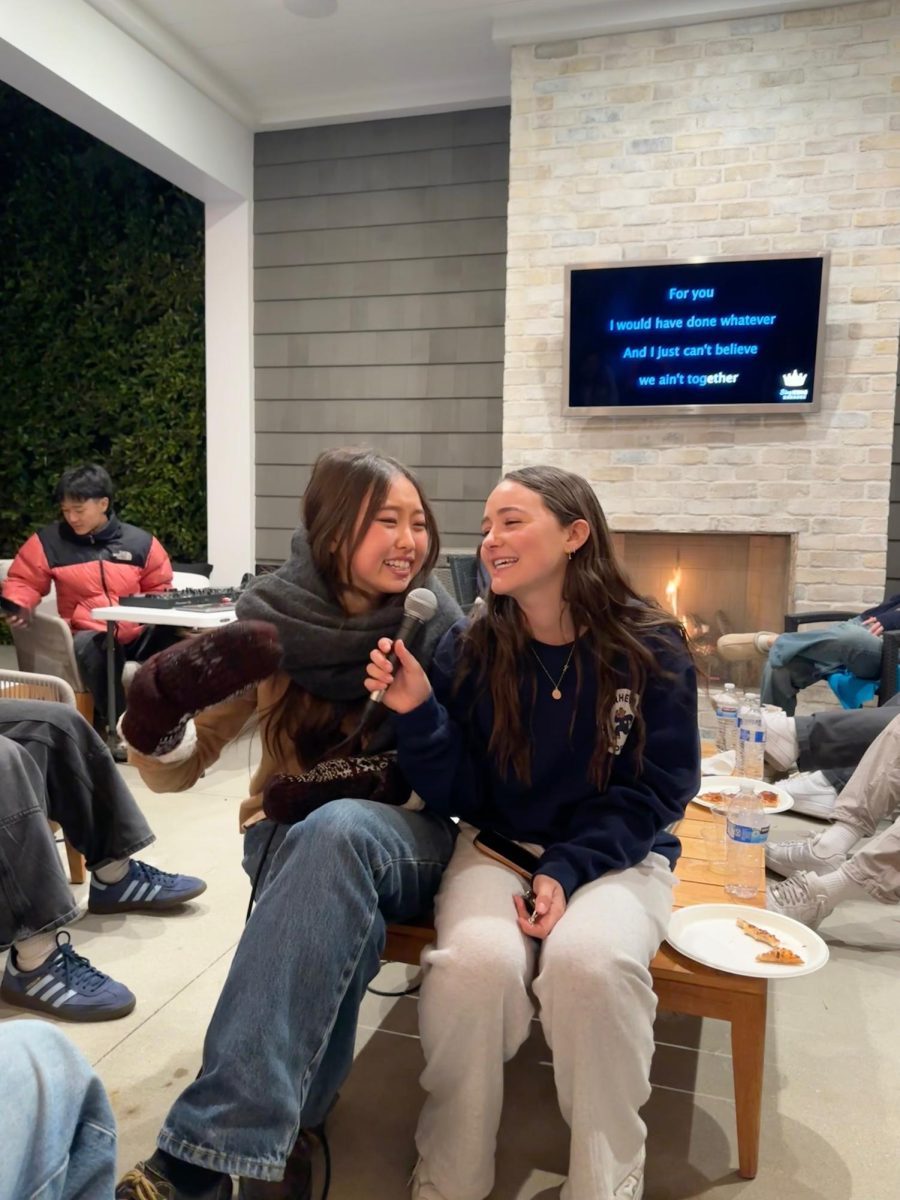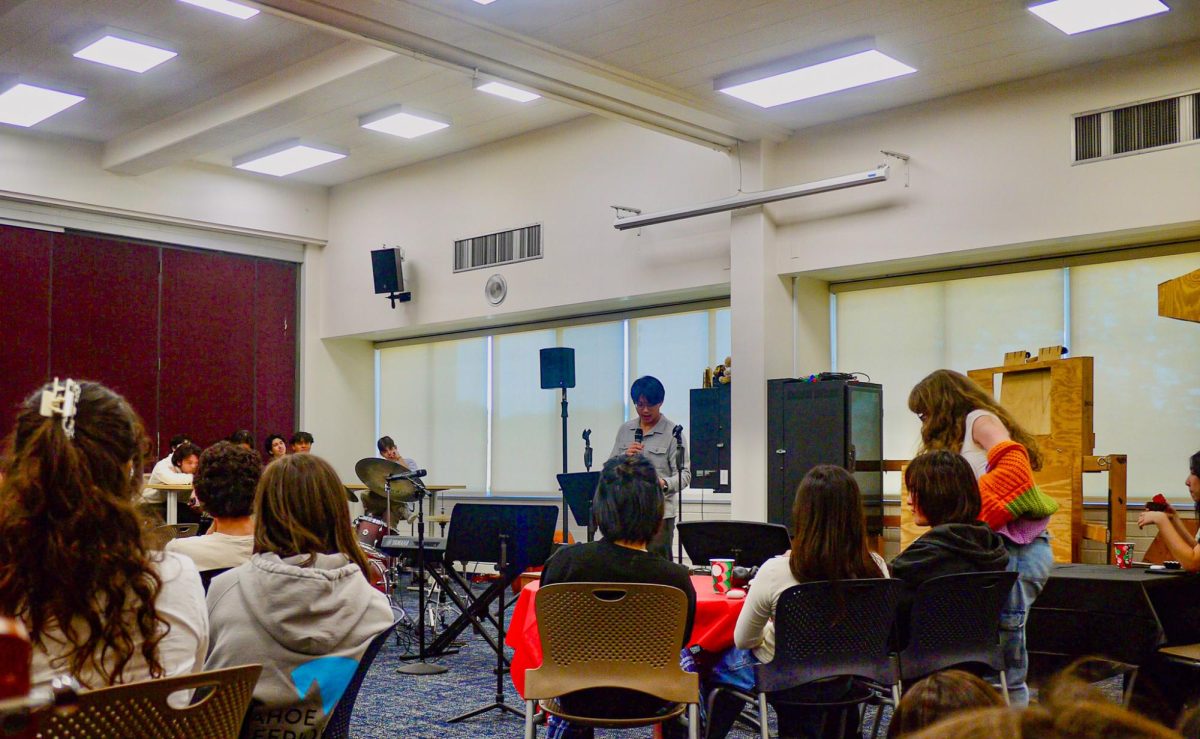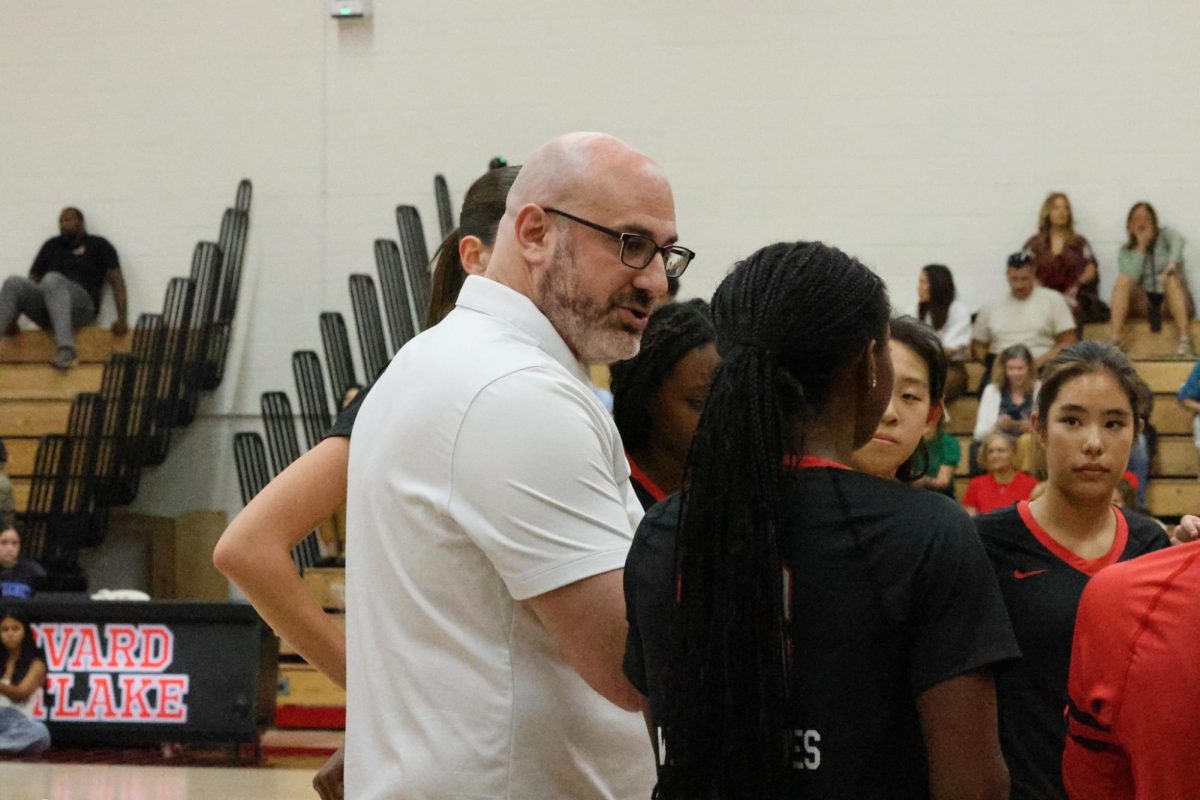The Chalmers Lounge was closed Nov. 4 following a lack of proper trash disposal by students. Food remains, cans and bottles, newspapers and other items were left on the tables in the lounge without being cleaned up, leading the administration to shutter the lounge for a day.
Upper School Dean Nia Kilgore said students leaving their trash on the tables is not unusual. She said the more significant amount of trash than other days being left on the tables was the point where it was decided to close the lounge.
“It’s actually a pretty daily occurrence that students leave bottles, paper and food wrappers and items on the tables and even on the floor,” Kilgore said. “It was two days in a row, one of which was the day the newspaper came out. It was clear kids had been reading the paper, which is always great, but they just left the papers open and walked away. It looked particularly worse than other days.”
Mark Dai ’26 said he particularly noticed the amount of newspapers left on tables, but also said he agreed with Kilgore in the belief that students should also clean up the trash that others leave behind.
“There’s always trash in the lounge,” Dai said. “But on that day, I partly, maybe blame [The] Chronicle because they had a billion articles there. Students need to try to clean up not only after themselves but also others. If you see trash, just throw it away.”
Kilgore said the aim of closing the lounge was to motivate students to throw away their trash and said she hoped that students would become more proactive in noticing trash left behind by others.
“It’s everybody’s responsibility,” Kilgore said. “We mention it in Seminar. Obviously, taking the action of closing the lounge hopefully sparked a bit of community awareness. It’s everyone’s individual responsibility, but it’s also everyone’s responsibility to help others. If you notice a friend walking away from a water bottle or soda can or something, tell them or throw it away yourself. the point is to get the trash cleaned up.”
Angus Norden ’26 said he was disappointed with the lack of effort of students in the lounge to clean up their trash. He said if students were aware of who they are actually making clean up their trash for them, they would be more inclined to clean it up themselves.
“It was a bit upsetting when I saw how many people didn’t pick up their trash,” Norden said. “It was crazy, with all the trash that was around and how no one was picking it up. Everybody was just walking by, not doing anything about it. It’s necessary to highlight how the ones who have to clean up the trash are the faculty. Maybe students will feel more self-accountable when they realize how many people have to do it instead of them when it’s their mess.”



